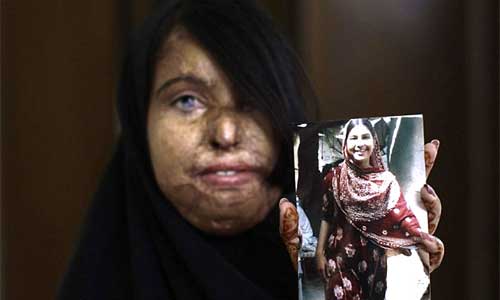Gender discrimination and violence against women continue unabated in Pakistan. Women are harassed widely and fall victim to “honor killings” and men’s carnal desire. They are discriminated in collective life and treated unfairly on the basis of their gender. Pakistani media routinely release reports of the brutal rape and murder of girls and women.
Recently, two stories citing discrimination and violence have captured the attention of Pakistani nation. First, the abduction, rape, and murder of the 10-year-old girl Farishta from Islamabad, which outraged the collective conscience across Pakistan and drew widespread condemnation. After being lost from a park, where she went to play, Farishta’s body was found on May 20. A photograph of her body circulated on social media showed signs of torture.
Second, Mahjabeen Sheran, a member of the Provincial Assembly of Baluchistan, was asked to leave the session for bringing her seven-month-old ill son to the house. She is cited as saying that it was the “worst” situation for her when she was left to decide between taking care of her son and attending the session.
“I felt embarrassed because some men in the session were making jokes and smirking about me bringing my son. At that point, I looked for someone to stand up for me and support me, but no one did,” she said.
In late March, the case of a Christian woman, who was reportedly kidnapped, forcibly converted and raped, went viral on social media. In the same month, news outlets and social media focused on egregious case of a woman who was beaten by her husband and her head was shaved when she had refused to dance for his friends. Meanwhile, a man beat his wife and kept her in chains.
The case of violence continued as a man cut the tongue of his divorced wife and another man was arrested for kidnapping his 14-year-old niece so as to traffic and sell her in Karachi in April.
Such cases repeatedly make the headlines in Pakistani newspapers. However, it is believed that many cases of violence against women in Pakistan remain unreported.
Pakistani women are harassed widely on the streets and in work environment. They lack mental peace in the wake of being harassed or abducted. In the meantime, a number of Pakistani female social media users complain of receiving threatening messages on social media for refusing to have contacts with male social media users. They are afraid of posting their photos online.
Although Pakistan’s laws support the rights and freedoms of women, they are not implemented thoroughly, the same as in Afghanistan. For instance, when Farishta’s family approached the police to report the case of her abduction, the police posed a lot of questions even asking her family if the 10-year-old girl eloped.
It is self-evident that a large number of radical religious groups are operating in Pakistani under the term of religion. Those groups show strong sensitivity towards women’s liberty and the way of their dressing. It is believed that those groups and many other closed-minded individuals create obstacles before women and curtail their freedoms since they have radical interpretation of religious tenets.
It should be noted that tribal code of conduct rules Pakistan’s tribal belts. That is to say, gender discrimination – stemmed from parochial mindset, traditional culture, and tribal code – is widespread in tribal areas of Pakistan, where women are treated as an inferior creature. In the remote areas, the cases regarding women are judged by tribal councils and elders and women are punished in desert courts. Having said that, those women who participate in social and political activities are highly prone to violence and discrimination. Therefore, it is believed that women in tribal areas do not have active participation in social and political arenas in Pakistan, similar to that in Afghanistan.
Although Pakistan is a democratic state and supports the rights and freedoms of women, sexual discrimination is rife in the wake of the active presence of some religiously radical parties and dominant rule of tribal code of conduct.
To safeguard the rights and freedoms of women, Pakistani government needs to spread legal awareness in tribal areas and pave the ground for smooth implementation of law across Pakistan. Those who are involved in the harassment of women and violation of their rights, freedoms, and dignity have to be brought to justice.
Meanwhile, Pakistan’s civil society and women rights activists have to raise their voice in support of women’s rights and freedoms so as to counteract the adverse effect of the radical attitude of fundamental groups on Pakistani individuals.
Home » Opinion » Violence against Women Looms Large in Pakistan
Violence against Women Looms Large in Pakistan
| Hujjatullah Zia

